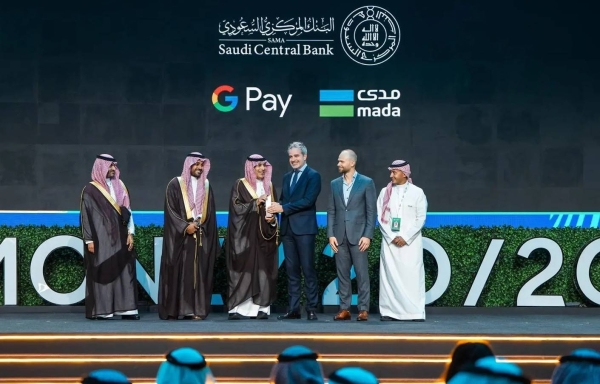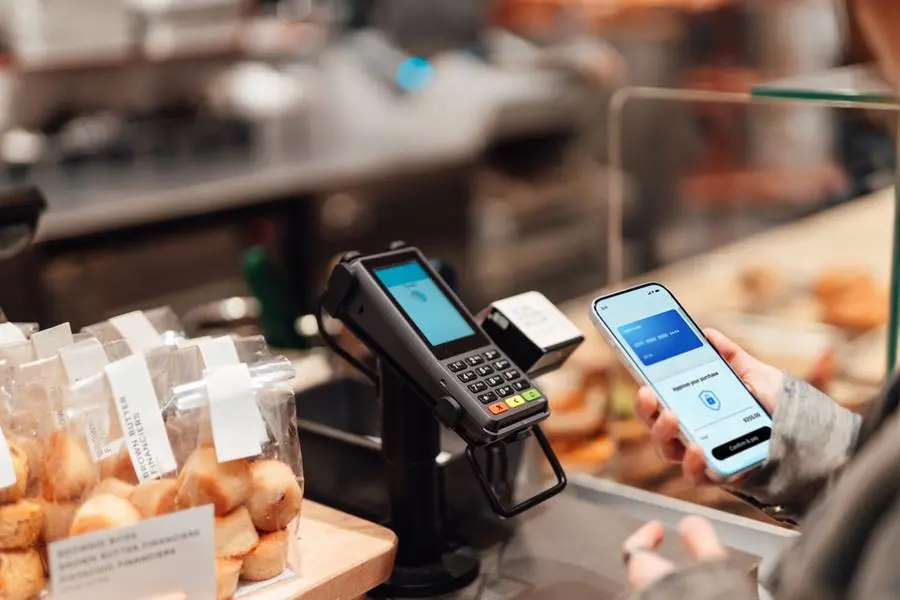Saudi Arabia Google Pay launch marks a turning point in the Kingdom’s journey toward becoming a leading cashless economy. The Saudi Central Bank (SAMA) announced that Google Pay is now available through the national payment network, mada. This move will allow citizens and residents to link their debit and credit cards directly to Google Wallet, making secure digital transactions more accessible.
The launch of Google Pay is part of Saudi Arabia’s broader Vision 2030 strategy, which aims to diversify the economy, strengthen the digital sector, and reduce reliance on cash. By introducing advanced payment solutions, the Kingdom is pushing forward its financial inclusion goals and building a foundation for a modern financial system.
What the Google Pay Launch Means
The rollout of Google Pay in Saudi Arabia introduces a new level of convenience for everyday transactions. Users can add their mada debit cards and supported credit cards into the Google Wallet app and make payments by simply tapping their phones at contactless terminals.

Security is a major focus of this system. Google Pay uses tokenization, which means the real card number is never shared with merchants. Instead, a unique virtual number is used, along with dynamic security codes for each transaction. This reduces risks of fraud and ensures safer online and in-store payments.
At the start, several leading banks are already integrated with Google Pay, and more banks are expected to join soon. The introduction of this digital wallet is another step toward making Saudi Arabia a regional leader in financial technology.

Alignment with Vision 2030
Saudi Arabia’s Vision 2030 aims to build a thriving digital economy, encourage innovation, and strengthen financial inclusion. The launch of Google Pay directly supports these goals in several key ways.

Reducing Reliance on Cash
Over the last few years, Saudi Arabia has made rapid progress in shifting away from cash. According to official data, electronic payments now account for nearly 80 percent of all retail transactions, exceeding the government’s original target. The availability of Google Pay will further accelerate this trend, as more people begin to use their smartphones for daily purchases instead of cash or physical cards.
Expanding Financial Inclusion
One of the goals of Vision 2030 is to increase financial participation across all segments of society. Not everyone in the Kingdom has traditionally used banking services or digital payment tools. With Google Pay, the barrier to entry is lower, as users only need a compatible smartphone and a bank card. This means more people can now benefit from safer, faster, and more convenient ways to pay.
Modernizing the Payment Infrastructure
By integrating Google Pay into the mada network, Saudi Arabia ensures that the system is compatible with merchants across the country. Mada already has widespread coverage in stores, restaurants, and businesses. Adding Google Pay to this ecosystem ensures a smooth rollout, strong regulatory oversight, and high levels of trust among consumers and merchants.
Driving the Digital Economy
The Kingdom’s fintech sector has been expanding rapidly, with new startups, investments, and digital services entering the market. The launch of Google Pay adds momentum to this growth by setting new standards for convenience, innovation, and customer expectations. It also positions Saudi Arabia as a competitive hub for financial technology in the region.
Benefits for Users and Businesses
The adoption of Google Pay in Saudi Arabia brings wide-ranging benefits across the financial ecosystem.
For Consumers
- Faster and more convenient payments using smartphones
- Secure transactions with tokenization and dynamic codes
- Less reliance on cash and physical wallets
- Ability to store not only payment cards but also tickets, loyalty programs, and passes in Google Wallet
For Merchants
- Faster checkouts through contactless payments
- Reduced reliance on cash handling, lowering costs and risks
- Access to customers who prefer using digital wallets
- Ability to attract tech-savvy consumers and international visitors
For Banks and Financial Institutions
- Stronger incentives to upgrade digital services
- Opportunities to launch innovative financial products
- Enhanced security standards that build customer trust
For the Government
- Measurable progress toward Vision 2030 goals
- Reduced shadow economy with more transactions moving into the formal system
- Greater transparency and financial oversight
- Strengthened reputation as a digital leader in the region
Related Developments in Saudi Arabia
The launch of Google Pay is not happening in isolation. Saudi Arabia has also signed agreements to bring more global payment platforms into the country. One major development is the planned acceptance of Alipay+ by 2026, which will make it easier for international visitors to use familiar wallets during their stay in the Kingdom.

This aligns with Saudi Arabia’s efforts to position itself as a global business and tourism hub. As international events and investments grow in scale, having multiple payment platforms available strengthens the country’s competitiveness.
At the same time, the Kingdom has already surpassed some of its cashless payment targets well ahead of schedule. The introduction of Google Pay ensures this momentum will continue, while also encouraging innovation in fintech, e-commerce, and digital banking.
Challenges to Consider
While the launch of Google Pay is a major success, several challenges remain that could influence adoption.
Adoption Among All Users
Not everyone owns a compatible Android smartphone or is familiar with how to use digital wallets. Public education campaigns and bank-led initiatives will be crucial in helping people adapt to the new system.
Merchant Readiness
Although many businesses already support contactless payments, smaller merchants may need time to upgrade systems or learn how to encourage customers to pay digitally.
Cybersecurity Concerns
As digital payments grow, so do concerns about data security and fraud. Building trust among users will be critical. Google Pay’s tokenization provides strong protection, but public awareness of these security measures must be emphasized.
Bridging the Digital Divide
Ensuring that rural communities and lower-income groups also benefit from digital payments is a challenge. Policymakers and financial institutions will need to ensure equitable access to banking and mobile technologies.
Long-Term Outlook
The introduction of Google Pay in Saudi Arabia is likely to reshape the payments landscape in multiple ways.
- Cash use will continue to decline, saving costs related to cash handling, storage, and transportation
- Businesses will enjoy faster and more efficient operations, reducing waiting times at checkouts
- Consumers will benefit from more convenient and secure payment options
- Tourism will gain from the presence of familiar global payment platforms
- The fintech industry will expand further, opening the door for innovations such as peer-to-peer payments, loyalty integrations, and new forms of digital banking
- Saudi Arabia will strengthen its position as a leading digital economy in the Middle East
Conclusion
The Saudi Arabia Google Pay launch through the mada network is a landmark achievement in the Kingdom’s financial transformation. By enabling safe, fast, and convenient payments, it aligns closely with Vision 2030 goals to reduce cash dependence, expand financial inclusion, and modernize the economy.
The initiative benefits consumers, businesses, banks, and the government alike, creating a win-win situation across the financial sector. While challenges such as adoption, education, and digital equity remain, the groundwork is in place for a rapid expansion of digital wallets in the Kingdom.
Looking ahead, the success of Google Pay will not only change how people pay but also how they interact with the broader financial system. For Saudi Arabia, it is another step forward on the path to becoming a global leader in digital finance and innovation.
Do follow UAE Stories on Instagram
Read Next – Arada Masaar 3 Sharjah: First Two Phases Sell Out in Hours














